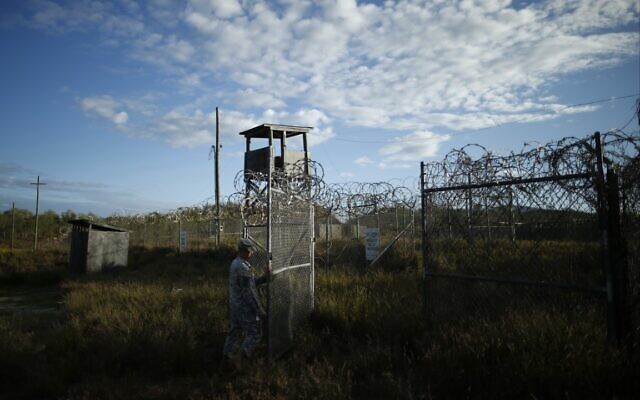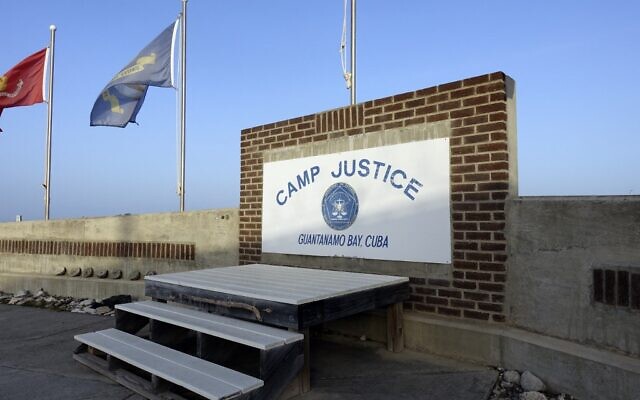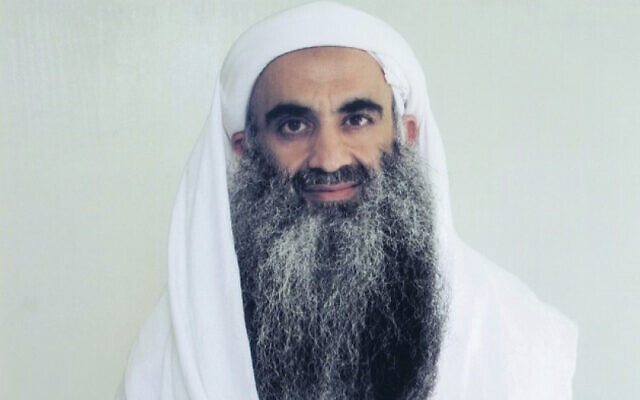conversation – like 20th anniversary of 9/11 Passed, there were five people accused of responsibility for the attacks still waiting for test At the Guantanamo Military Commission.
The case is the largest criminal trial in United States history in terms of number of victims. charge sheet Lists the names of 2,976 people which were the direct casualties of two hijacked commercial airliners that crashed into the World Trade Center and caused the collapse of the Twin Towers, the second that crashed into the Pentagon, and the fourth, probably aiming for the US Capitol building, which was supposed to be an area I was brought down. Western Pennsylvania when several travelers overcame their hijackers.
Yet two decades after America’s worst terrorist attack, the 9/11 case remains in a pre-trial stage and has no trial date. hearing, which Resume on September 7, 2021 After a 17-month COVID-19 related suspension, the case was the first for a new judge – the fourth officer to fill that role.
As someone who has visited Guantanamo on 11 occasions since 2013 to oversee legal proceedings in the 9/11 case, I have come to understand that the delay is the inevitable result of an irreversible conflict: the US government aims to convict. to stay and Execute accused men As a way of providing justice for thousands of victims. But those goals are hindered by the fact that the defendants are also Victims of CIA Torture.
no martyrdom-by-military commission
There are five defendants involved in the 9/11 case.
Khalid Sheikh Mohammed, which the government refers to as KSM, is accused of being the “mastermind” behind the attacks.
Walid bin Attashi He is accused of training the two hijackers how to fight close to each other using box cutters to take over the planes.
Ramzi bin Al-Shibho He is accused of recruiting some of the hijackers who formed a cell in Hamburg, Germany, and acted as a mediator between key hijacker Mohammed Atta and al-Qaeda leaders.
ammar al-baluchio, whom the government refers to as Ali Abd al-Aziz Ali, and Mustafa Al Hausawi Some of the kidnappers are accused of transferring money.

In this November 21, 2013 file photo, a soldier closes the gates at the now-abandoned Camp X-Ray, which was used as the first detention facility for al-Qaeda and Taliban militants who were killed at the Guantanamo Bay Naval Was captured after the September 11 attacks. Base, Cuba. (AP photo/Charles Dharpak, file)
The men were charged in 2007 and were convicted in June 2008. The Bush administration hoped that then-US President George W. The trial may be concluded before Bush leaves office. But that hope was dashed in December 2008 when Mohamed and other defendants offered to accept the blame On the condition that they will be hanged immediately. This try to kill himself was not an option – the Military Commissions Act does not provide for execution without trial.
Obama administration, after Abandoning Your Plan to Try the Men in Federal Court In New York, he was recharged in military commissions on April 4, 2012. In the official filing, the case is abbreviated KSM II to indicate that this is the second attempt to close this trial.
demand full disclosure
Most of the 9/11 hearings I’ve attended have had fewer than 10 journalists on media delegations. The headline is not the stuff of news, with seemingly procedural battles over complex and mysterious points of law.
but as a scholar of law and torture, they are attractive to me. In trying to understand how torture matters or should matter to the legal process in cases where defendants face the death penalty, I realized that the 9/11 case was between conflicting interests. Play in a fight between defense teams and prosecutors who have been caught. NS information search What happened to the defendants during the years they were detained at the “black sites” of the CIA – secret foreign prisons in which US agents interrogate suspects.
Defense lawyers want the government to have access to all information about the CIA’s abusive treatment of their clients, including the finer details about their torture. They emphasize that it is essential to provide effective legal advice.
The demand is particularly relevant in a capital case, but information regarding a defendant’s pre-trial custodial treatment in any criminal case is legally relevant.

A sign is shown for Camp Justice at Guantanamo Bay Naval Base in Cuba in this file photo displayed by US military officers on September 7, 2021. (Paul Handley/AFP)
Prosecutors argue the CIA’s now-defunct recital, detention and interrogation (RDI) program is too sensitive to share documents containing full details, even lawyers with top-secret security clearance. also with.
CIA secrets, like a prosecutor explained, “The government has the most highly classified information… It is extremely important that we protect that information.”
Instead of the original CIA material, prosecutors have provided nearly 21,000 pages of summaries and replacements that obscure specific dates and locations and hide the identities of agents and contractors.
The CIA, which controls information about its operations and determines what prosecutors can provide in search of defense, has No institutional interest in due process or fair trial, only in keeping its secrets.
Meanwhile, prosecutors demand more information by insisting that this trial is about the defendants’ role in the 9/11 crime, and that what happened to them later is not related to their involvement in these events. .
“The CIA is not on trial,” said Prosecutor Jeffrey Grohring.
No ‘After Torture’
Since September 2019, many hearings have been devoted to persuading judges to exclude evidence the government intends to use in the trial, namely the statements defendants made to FBI agents who transferred from them in 2007. Five months after he was questioned. black sites. The government referred to the agents as “clean teams” because they had no hand in the CIA torture program.

This February 2017 photo provided by his lawyers shows Khalid Sheikh Mohammed at Guantanamo Bay prison in Cuba. (courtesy: Derek Potet via AP)
Prosecutors say that because FBI interrogators used lawful methods rather than coercion when interrogating defendants, these statements should be admissible in court. Defense has called witnesses, including two architects of the CIA torture program, James Mitchell and Bruce Jessen, who Testified in January 2020. Defense teams are making the case that there is no “after torture” for the victims, and so the FBI’s statements are tainted by their past torture and dismiss them – in legal terms – as “the fruit of the poisonous tree”. needed.
From my point of view, the pre-trial impasse can be largely resolved if the government makes a choice: If the priority is to protect CIA secrets, then the death penalty should be taken off the table and pleas for the life sentence are warranted. The conversation should start. If the death penalty remains a priority, the rescue should be given access to all the information they seek, for example, full Senate Select Committee on Intelligence Report on CIA Presentation Program.
Although the case receives sporadic media attention, it deserves greater public interest because the stakes are so high. No one can predict how the case will end when the 9/11 trial will finally begin, but one thing should be clear: an important chapter in the history of America in the 21st century is being written in high security at Guantanamo. In the court room.
this is the article republished From The Conversation under a Creative Commons license.